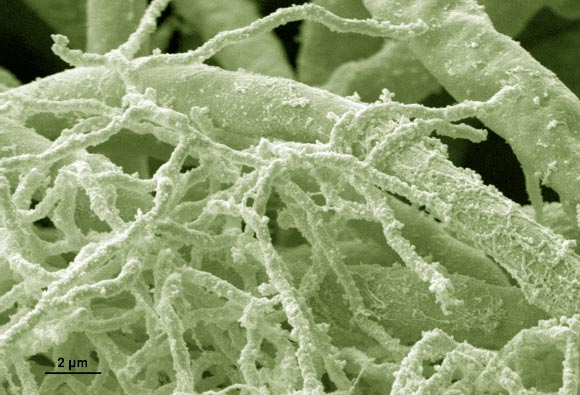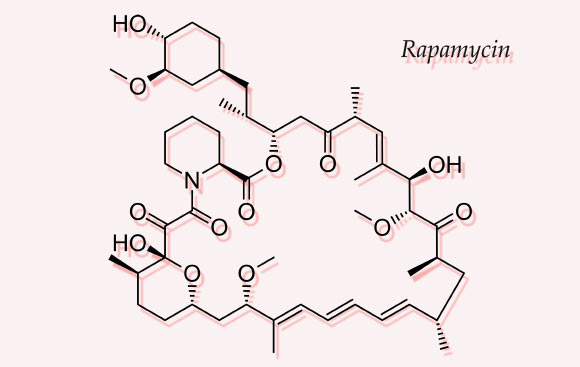Rapamycin – an immunosuppressant drug reported to extend the lives of mice by up to 14 per cent – has limited anti-aging effects, according to a paper published online in the Journal of Clinical Investigation.

Rapamycin is an immunosuppressant that has been isolated from the bacterium Streptomyces hygroscopicus found in soil samples from Easter Island. The image shows co-culture of Streptomyces hygroscopicus with Aspergillus nidulans (HKI / FSU)
Rapamycin, also known as sirolimus, has been shown to increase longevity in mice even when treatment begins at an advanced age.
Until now, it has been unclear if the extension of life also correlates with prolonged health and vigor.
Dr Dan Ehninger and his colleagues from the German Center for Neurodegenrative Diseases evaluated age-associated characteristics in mice treated with rapamycin.
The scientists found that rapamycin improved memory and spatial learning, reduced thyroid follicle size, and reduced body fat in older mice.
However, many of these same attributes were also improved in young mice treated with the drug, indicating an age-independent drug effect.

Structural diagram of rapamycin (© Fvasconcellos)
The prevalence of cancer, a common cause of mouse mortality, was also decreased in older treated mice.
The study shows that rapamycin treatment has no effect on several age related symptoms, including cardiovascular and liver function, loss of muscle mass, strength retention, or balance.
The results suggest that the treatment may increase lifespan through reduction of cancer rates, and the drug may be useful for relief of some age related conditions.
Dr Ehninger’s team plans to study the effect of rapamycin on age-related neurodegenerative diseases of the elderly such as Alzheimer’s disease.
______
Bibliographic information: Frauke Neff et al. Rapamycin extends murine lifespan but has limited effects on aging. J. Clin. Invest., published online July 25, 2013; doi: 10.1172/JCI67674







